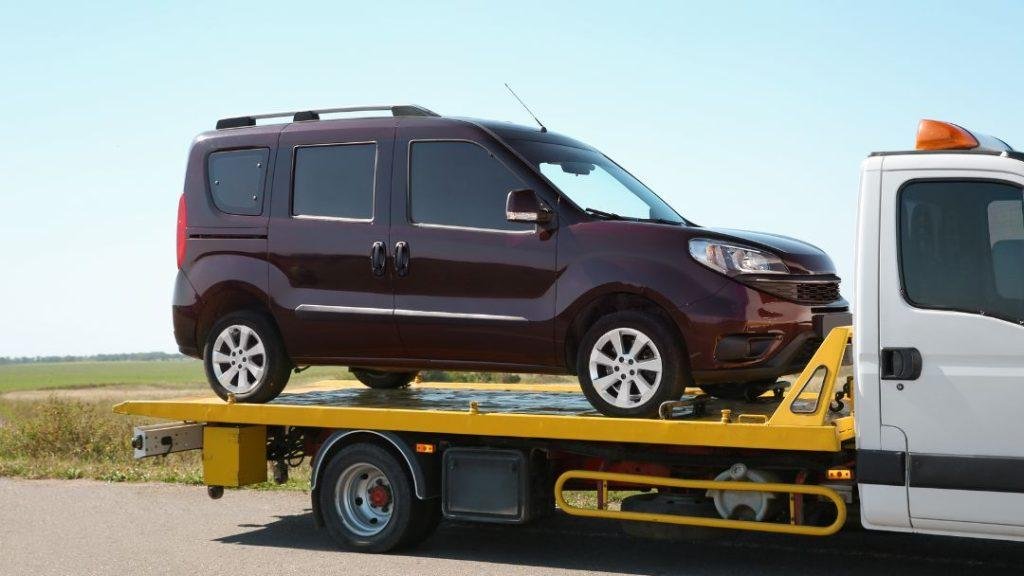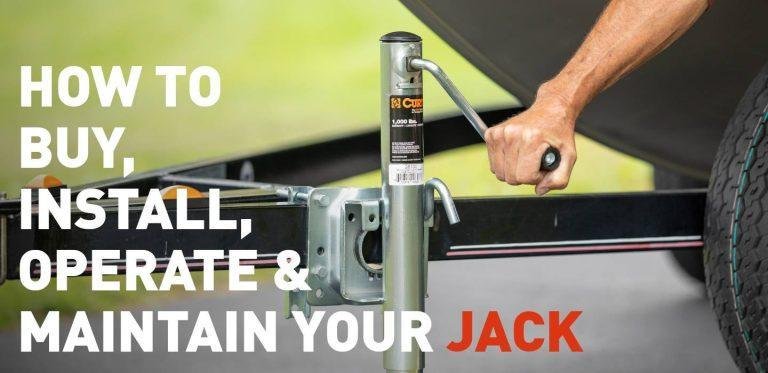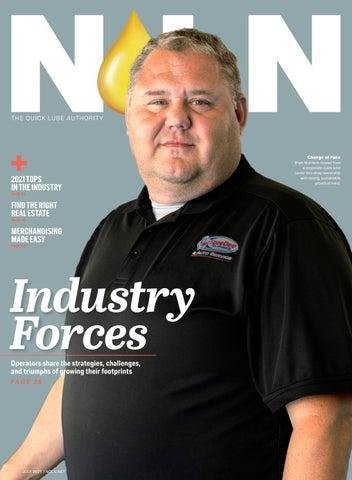When your car breaks down on the road, getting it towed may seem like a simple solution. However, have you ever considered if towing can actually damage your car? While towing is a common occurrence, it’s important to understand the potential risks and consequences before letting just anyone hook up your vehicle.
Importance of Knowing If Towing Can Damage Your Car
Knowing if towing can damage your car is crucial for several reasons. Firstly, it can help you make an informed decision about whether to opt for another form of transportation or proceed with getting towed.
Secondly, it will help you understand what precautions to take in order to prevent any potential damage that may occur during transport. Being aware of the risks associated with different types of towing methods can help you choose a reputable and experienced tow-truck operator who will handle your car carefully.
Understanding what constitutes towing and its potential effects on your car is important before making any decisions about how to transport a disabled vehicle. The following sections will go into greater detail about different types of towing methods and their associated risks in order to help you make an informed decision about how best to transport your car without causing any additional damage along the way.

Types of Towing
When it comes to towing a vehicle, there are several methods that are commonly used. The three most popular types of towing are flatbed, dolly, and hook and chain towing. Each method has its own unique advantages and disadvantages, so it’s important to understand the differences between them.
Flatbed Towing
Flatbed towing is the safest and most popular method of towing. This type of towing involves a truck with a flatbed that can be tilted or lowered to the ground.
Once the truck is in position, the vehicle to be towed is driven onto the flatbed and secured with chains or straps. With all four wheels off the ground, this method reduces wear and tear on your car since there is no contact between your vehicle’s tires and the road.
Flatbed tow trucks can safely transport any type of vehicle including large trucks, sports cars, luxury cars, motorcycles, or even boats. Flatbeds also allow for easy loading/unloading in tight spaces such as underground parking garages.
Dolly Towing
Dolly towing involves using a small two-wheeled trailer with ramps that allow two wheels of your car (usually front) to remain on the ground while being towed by another vehicle (tow truck). This type of towing can be an affordable solution for short distances/trips but it’s not ideal for long distances since it puts continuous stress on your car’s suspension system. The main advantage of dolly towing is that it allows you to tow smaller vehicles without needing a full-sized tow truck which makes it easier when navigating through urban areas.
Hook & Chain Towing
Hook & chain towing was once one of the most common methods used but has become less popular due to its disadvantages. In this method, a hook or series of chains are attached directly to the vehicle’s chassis and lifted off the ground at the front or rear.
Front-wheel drive vehicles are towed by their front end, while rear-wheel drive cars are towed from the back. This method of towing is generally not recommended for newer vehicles as it can cause damage to your car’s undercarriage, suspension, and other components as it drags on the ground.
In addition, hook & chain towing may even cause damage to your car’s body. Overall, it’s important to carefully consider which type of towing is best suited for your vehicle and situation before having it towed.
Factors that Affect Your Car When Being Towed
When it comes to towing a vehicle, there are several factors that can affect your car. Knowing these factors can help you prevent damage and ensure a smooth towing process. Here are some of the most important factors to consider:
Weight of the towed vehicle
One of the most important factors to consider when towing a car is the weight of the towed vehicle. Towing a car that is too heavy for your tow truck can put unnecessary stress on your vehicle’s engine, transmission, and brakes. It’s important to make sure that your tow truck is rated for the weight of your car before attempting to tow it.
Speed of the tow truck
The speed at which your car is towed can also affect its condition. If a tow truck driver travels too fast while towing your car, it can cause unnecessary strain on both vehicles and increase the risk of an accident. A good towing company will always adhere to safe driving practices and ensure that they are traveling at an appropriate speed for towing.
Road conditions
Road conditions can play a significant role in how well your car is able to withstand being towed. Rough roads or uneven surfaces can cause additional wear and tear on your vehicle’s suspension system and tires, potentially causing damage if not handled properly by the tow truck driver. It’s important to communicate any concerns about road conditions with your towing company so they can take the necessary precautions.
Type of transmission
The type of transmission in your car can also affect its ability to be safely towed. Vehicles with automatic transmissions should be flatbed-towed rather than dolly-towed or hooked up with chains, as this protects against potential transmission damage caused by these other methods.
Understanding these four key factors – weight, speed, road conditions, and transmission type – is crucial in ensuring that your car is safely and properly towed without damage. Before entrusting your vehicle to any towing company, make sure to do your research and choose a reputable company with the experience and knowledge necessary to handle your specific towing needs.
Potential Damage to Your Car When Being Towed
Damage to the Suspension System
When towing a vehicle, the suspension system is one of the most vulnerable parts. The weight of the car can put undue pressure on certain components like shock absorbers, struts, and springs.
These parts are designed to support only the weight of the car and not any additional weight from being towed. The stress from towing can cause them to wear out faster than usual or even break entirely.
Symptoms of suspension damage include a bumpy or rough ride, uneven tire wear, and unusual noises when going over bumps or rough terrain. It’s essential to have any suspected damage checked by a mechanic as soon as possible so that it doesn’t lead to further complications.
Transmission Damage
When being towed, your car’s transmission is subjected to added pressure and strain that can cause significant damage if not handled properly. Automatic transmissions are especially vulnerable since they require fluid pressure to operate correctly, which is not present during towing. If you need your automatic vehicle towed for more than a short distance, it’s recommended that you use a flatbed tow truck rather than dolly towing.
This method keeps all four wheels off the ground and prevents transmission damage. Manual transmissions are less susceptible but still at risk for potential damage if they’re not towed correctly.
Brake Damage
The brakes on your car can also suffer when being towed incorrectly. If they’re engaged while being pulled behind another vehicle, it could cause overheating or even complete failure due to increased friction. Additionally, if your parking brake is left on while being towed with all four wheels on the ground (dolly towing), it could cause significant harm to your brake system.
It’s essential always to release your parking brake before being towed. Towing your car can be a stressful experience, especially if you’re not aware of the potential damage it could cause.
Understanding how towing affects your car’s suspension system, transmission, and brakes can help you avoid costly repairs and ensure that your vehicle stays in good condition. Remember to always choose a reputable towing company and communicate any specific needs or concerns to the tow truck driver before they begin the process.
How to Prevent Damage When Being Towed
When it comes to towing, the prevention of damage to your car is always the best approach. This can be achieved by taking a few necessary precautions that will ensure your vehicle is protected during the towing process. Below are some of the key ways to prevent damage when being towed.
Choosing a reputable towing company
The first and most crucial step in ensuring your car is not damaged while being towed is choosing a reputable and experienced towing company. Look for a company that has been in business for many years and has a proven track record of providing excellent service to its customers. A reputable towing company will have experienced drivers who know how to handle different types of vehicles, including luxury cars and heavy-duty trucks.
You can check online reviews and ratings, ask for referrals from family or friends, or even contact local authorities such as the police department or DMV for recommendations. You should also make sure that the towing company you choose has proper licensing and insurance coverage to protect you in case any damage occurs during transport.
Communicating with the tow truck driver about your car’s specific needs
Another essential step in preventing damage when being towed is communicating with the tow truck driver about your car’s specific needs. Different types of vehicles require different types of towing methods, so it’s essential that you let the driver know what type of car you have before they start hooking it up.
If your vehicle has any special features such as all-wheel drive or four-wheel drive, it’s crucial that you inform the driver beforehand so they can take appropriate measures during transport. Additionally, if your vehicle has a low clearance or an air suspension system, make sure to let them know so they can use special equipment if necessary.
Taking necessary precautions before being towed
Taking necessary precautions before being towed can help prevent damage to your car. Make sure your vehicle’s emergency brake is engaged and that the wheels are securely choked to prevent any movement during transport. If your car has a manual transmission, put it in neutral, and if it’s an automatic, make sure it’s in the park.
Additionally, remove any loose items from the car such as personal belongings or accessories that may get damaged during transport. And finally, make sure you have all the necessary paperwork ready such as your driver’s license and insurance documents just in case anything goes wrong during the towing process.
Conclusion
Towing can potentially cause damage to your car if not done correctly. As discussed in this article, factors such as weight, speed, and road conditions can all contribute to possible damage. However, by taking necessary precautions such as communicating with the tow truck driver and choosing a reputable towing company, you can greatly reduce the risk of damage.





